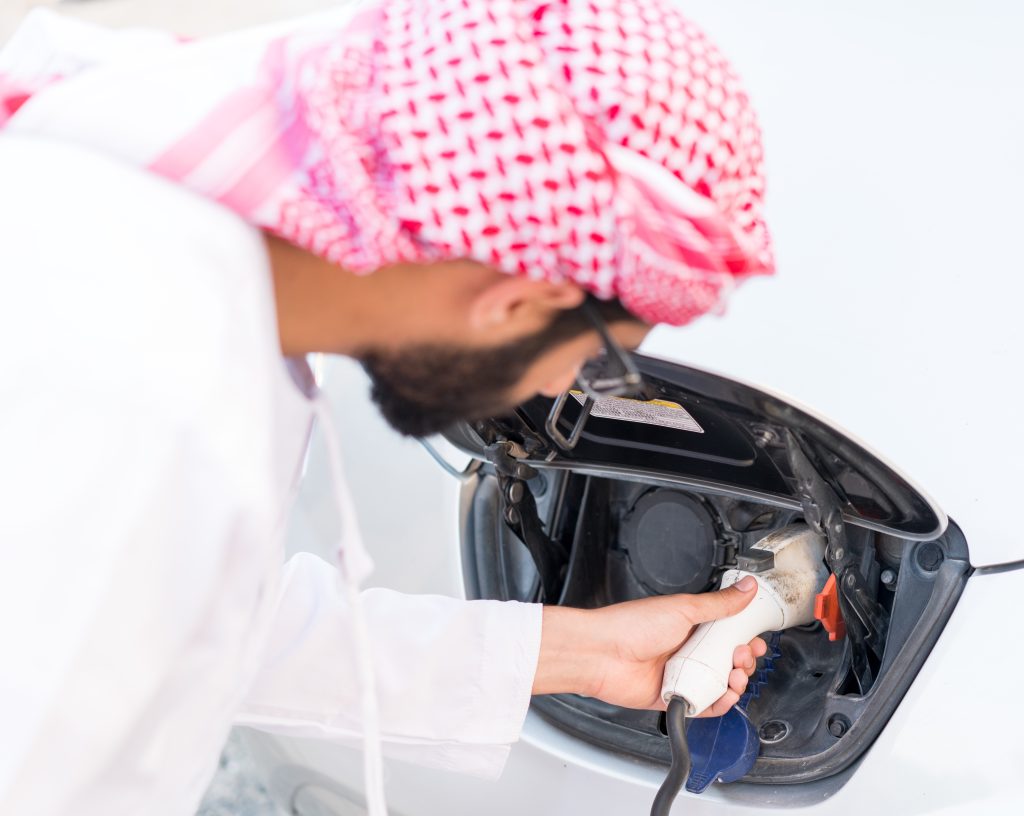Anticipated to expand at an impressive rate, Saudi Arabia’s electric vehicle (EV) market is on track to achieve a valuation of US$ 53,639.1 million by 2032. This projection is a result of the Kingdom’s environmental policies, increasing consumer interest in EVs, and advancements in infrastructure. However, the region faces obstacles such as securing investments and addressing high-temperature charging issues.
The Kingdom’s EV sector is experiencing rapid growth that far exceeds global averages, outpacing markets in established economies such as Australia and Singapore. This exceptional growth is attributed to robust government funding, ambitious national targets, and heightened consumer interest in eco-friendly transport options.
The Saudi government is heavily investing in the EV sector, with plans to inject $50 billion into EV production over the next decade. The nation aims for electric cars to make up 30% of new vehicle sales by 2030, equating to approximately 912,010 EVs sold by 2032—a sizable share of the market.
Multiple factors are contributing to the burgeoning demand for EVs in Saudi Arabia. The nation’s increasing population and economic growth are driving up demand for electricity, positioning EVs as a sustainable energy alternative. The Kingdom’s Vision 2030 initiative, which emphasizes environmental and economic objectives, also plays a significant role, alongside a thriving SME sector that requires a growing fleet of commercial electric vehicles. The MENA region’s emphasis on EVs and energy storage solutions, coupled with expanding 5G networks and Vision Document implementations, are expected to bolster EV adoption in Saudi Arabia. The booming e-commerce and transportation & logistics sectors are also predicted to drive demand for emission-free commercial vehicles.
Targeting 50,000 Charging Stations by 2025
To support the anticipated surge in EVs, Saudi Arabia is ambitiously aiming to establish 50,000 charging stations throughout the country by 2025. This target is part of the Saudi Electric Vehicle Charging Infrastructure Development Initiative (SEVCIDI) that commenced in 2021. In addition, the Kingdom has been organizing the Diriyah ePrix since 2018, a Formula E championship that highlights electric vehicles and promotes the technology.
Strategic Partnerships and Investments Accelerate Infrastructure Development
International partnerships are crucial for Saudi Arabia’s EV infrastructure expansion. Collaborations with companies like Lucid Motors aim to establish EV manufacturing plants within the country. The National Industrial Development Center (NIDC) is also playing a role in fostering a strong domestic EV industry. Partnerships with Siemens and Schneider Electric are set to enhance the charging network with state-of-the-art ultra-fast chargers, with substantial investment from both government and private sectors expected to drive rapid growth in EV production and infrastructure.
Challenges and Regional Market Dynamics
The Riyadh area, including the capital, is forecasted to lead in the EV market, setting a goal of converting 30% of the city’s vehicles to electric by 2030. Saudi Arabia’s market dominance is reinforced by its significant share of vehicle sales within the GCC and the MENA region. Nevertheless, the Kingdom’s reliance on oil poses challenges to the transition to EVs, as does the need for a widespread charging network.
Passenger Cars Take the Lead with Over 45% Market Share
Passenger cars are the frontrunners in Saudi Arabia’s EV market, claiming more than 45% of the revenue. This is due to consumer preferences, market dynamics, and government policies. While luxury gasoline-powered vehicles remain in demand, an increasing number of consumers are considering electric options, with the passenger car segment expected to grow substantially by 2027.
Consumer sentiment is pivotal in the shift towards EVs, as illustrated by a study in Hail City. The Saudi government is leveraging this trend by forming partnerships to establish manufacturing bases for EVs and investing through the Public Investment Fund. The Saudi Standards, Metrology and Quality Organization (SASO) is also crucial in setting and enforcing EV requirements.
Fast-Charging Infrastructure on the Rise
The establishment of a comprehensive fast-charging network is a key element of Saudi Arabia’s EV strategy. The Electric Vehicle Infrastructure Co. (EVIC) plans to install 5,000 fast chargers by 2030. This initiative reflects the government’s dedication to creating an effective EV ecosystem, with collaborations like the one with Lucid Group and the industrial license granted to Ceer, the first Saudi EV brand.
Strategic partnerships aim to develop renewable energy sources for EVs, and the government is securing access to essential resources such as lithium. These efforts are aligned with the goals of Saudi Vision 2030 and are expected to yield non-oil economic growth, job creation, and consumer savings.
Top Contenders Vie for Dominance in EV Market
In the competitive Saudi EV market, Toyota, Hyundai, Barq EV, and BMW AG are key players, with Toyota leading in vehicle sales in the first half of 2023. Hyundai is strengthening its position with a new assembly plant and a network of component suppliers. The strategic focus on EVs by these companies supports the Kingdom’s goal of electrifying a third of Riyadh’s cars by 2030 and establishing a strong domestic EV industry.
Saudi Arabia Electric Vehicle Market Key Players
- BMW AG
- BYD Company Ltd.
- Ceer Motors
- Lucid Group, Inc.
- MG Motor
- The Hyundai Motor Company
- Toyota Motor Corporation
- Volkswagen AG
- Other Prominent Players
Market Segmentation:
- Battery electric vehicle (BEV)
- Fuel cell electric vehicle (FCEV)
- Plug-in hybrid electric vehicle (PHEV)
- Hybrid electric vehicle (HEV)
- Autonomous Electric Vehicles
By Vehicle Type:
- Passenger Cars
- SUVs
- Light Commercial Vehicles
By Charger:
- Normal
- Fast
By Power Output:
- Less than 100 KW
- 100-250 KW
- Above 250 KW
By Sales Channel:
- OEMs
- Aftermarket
